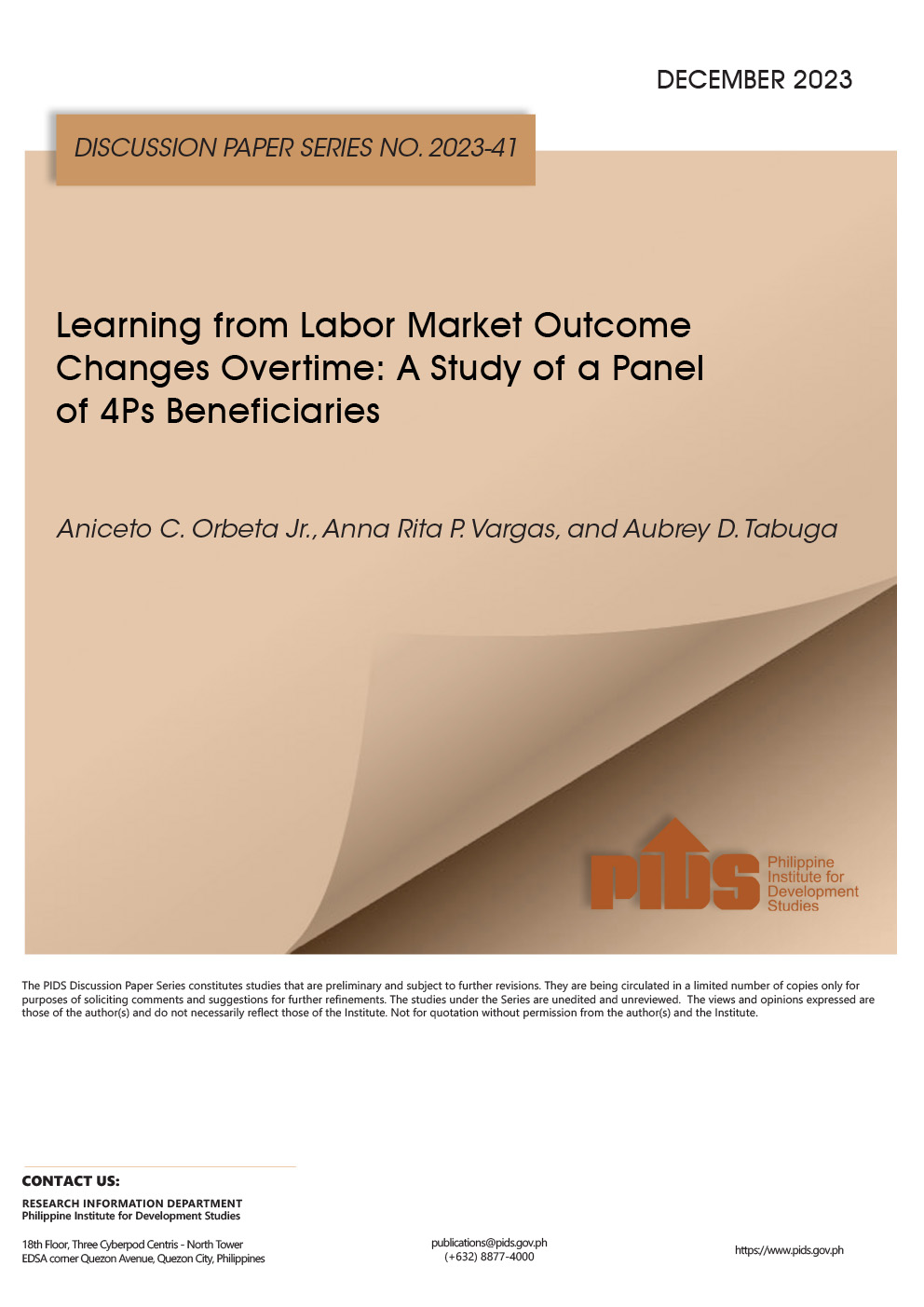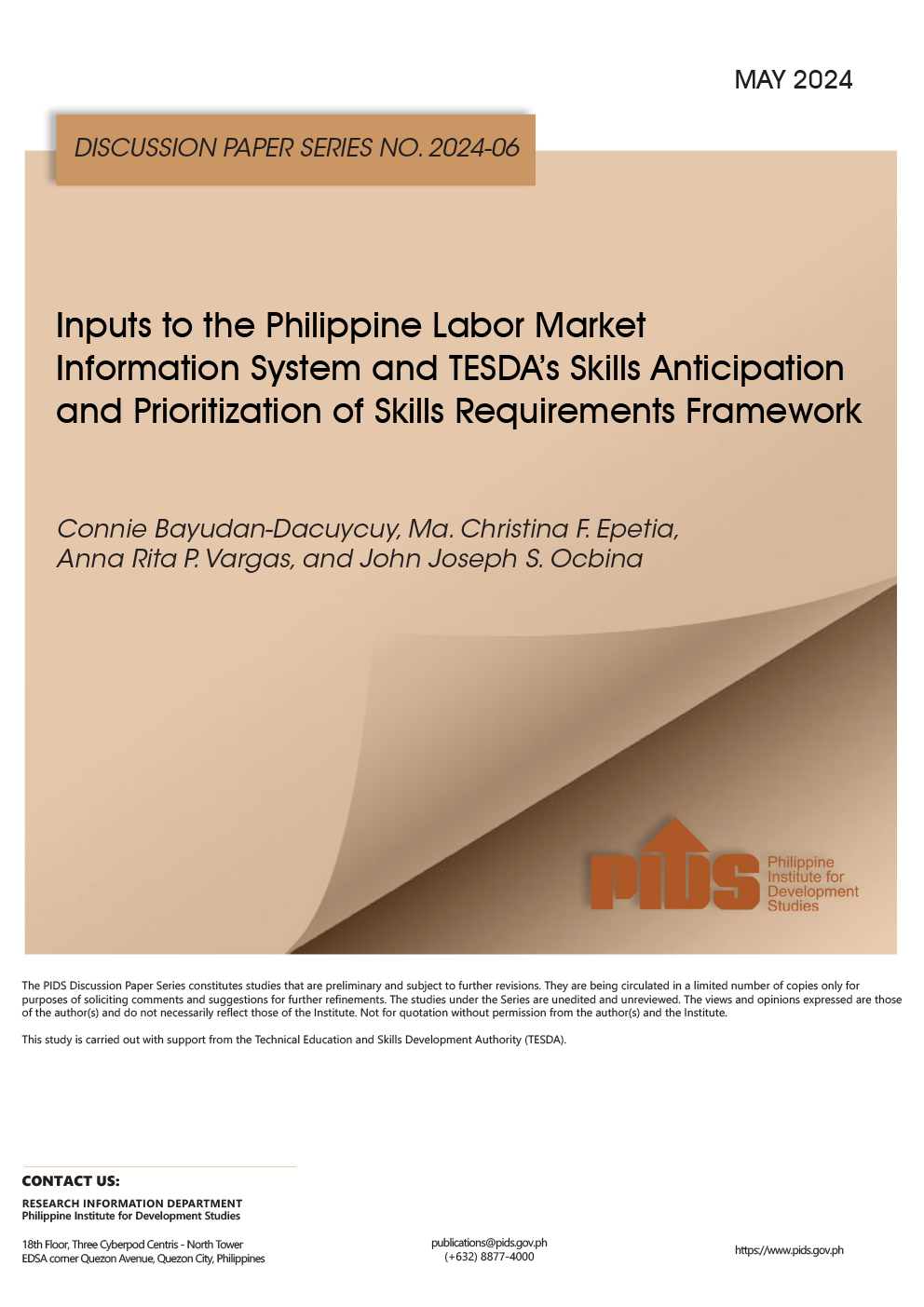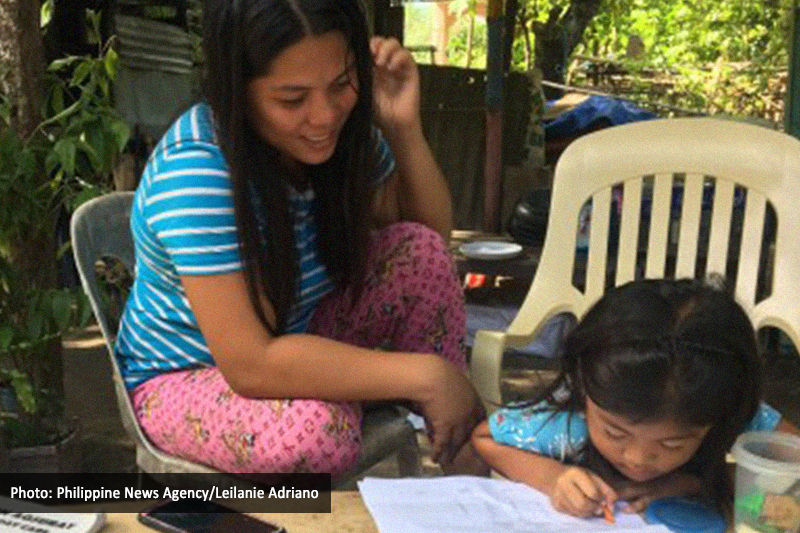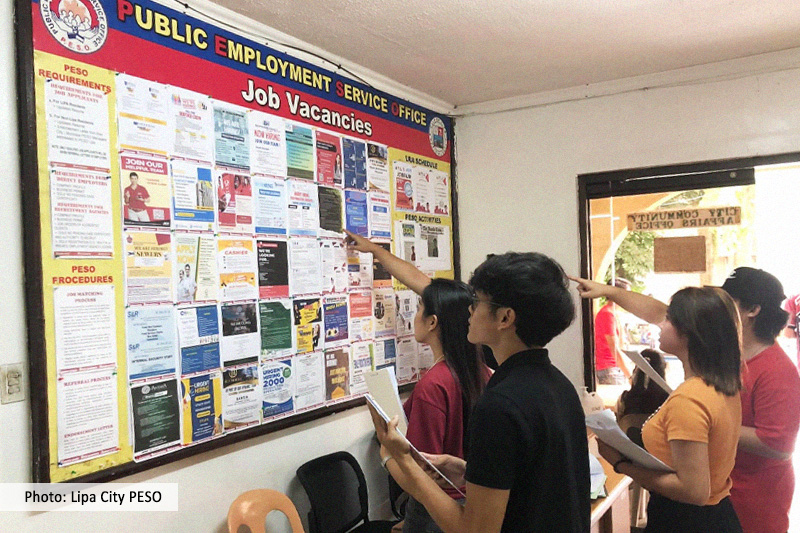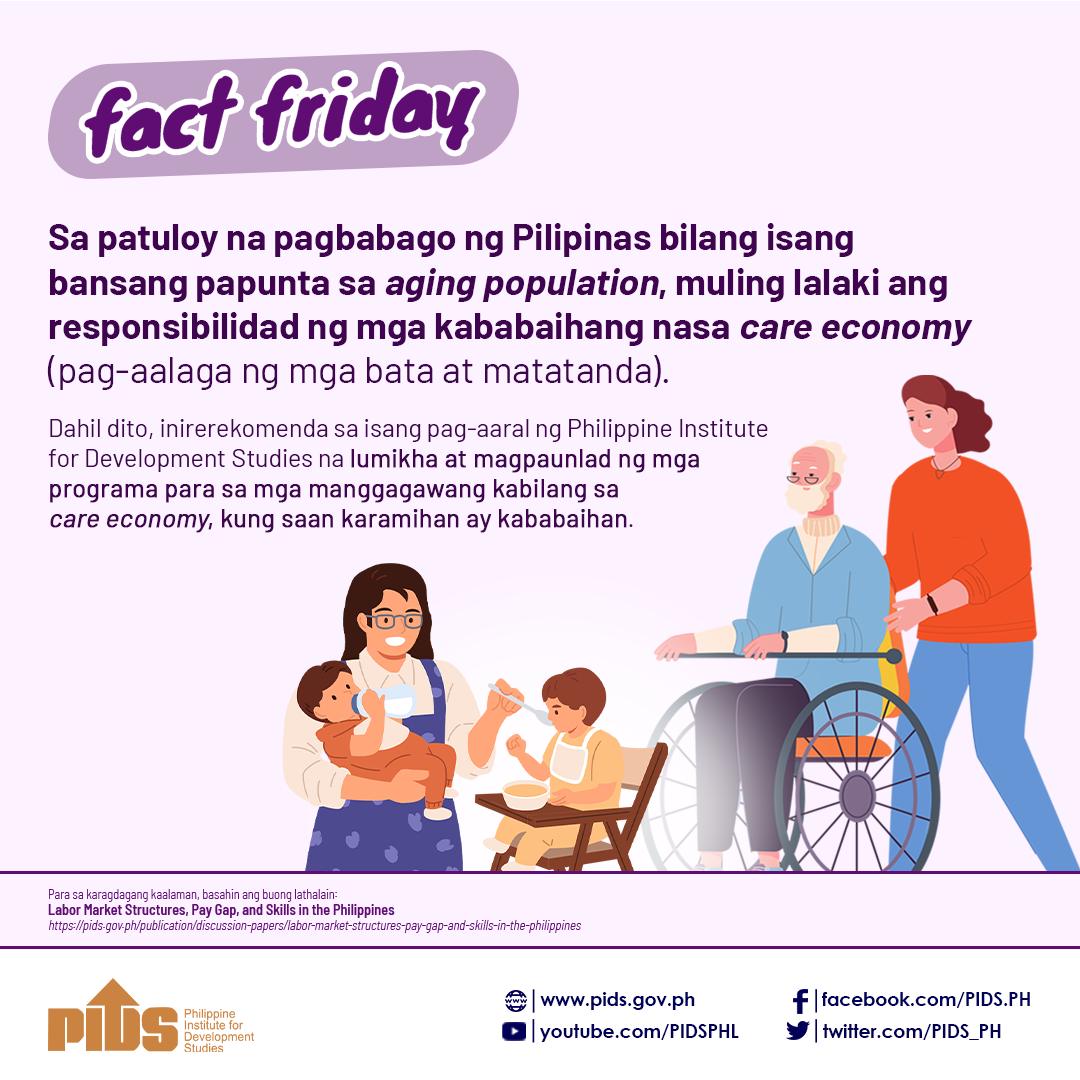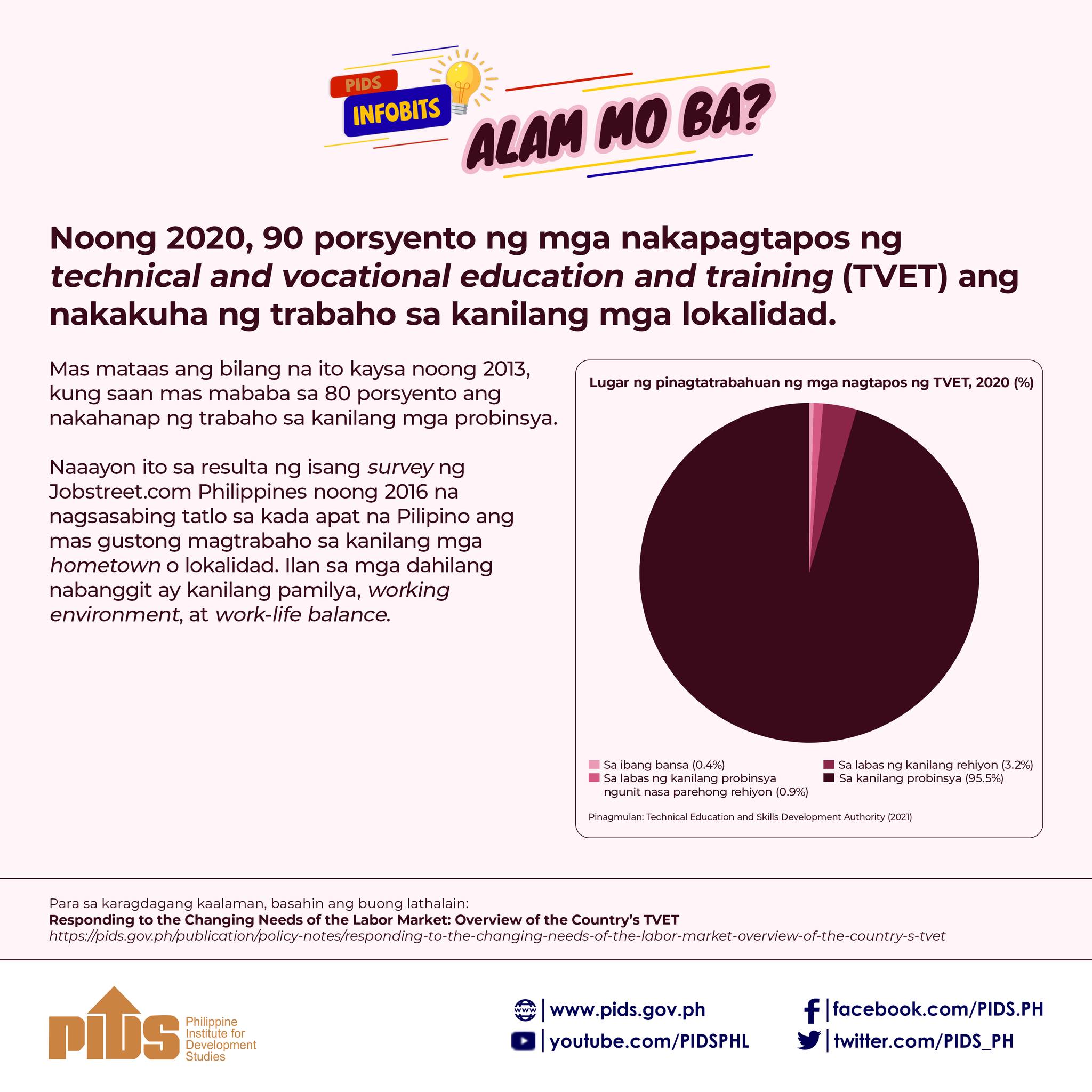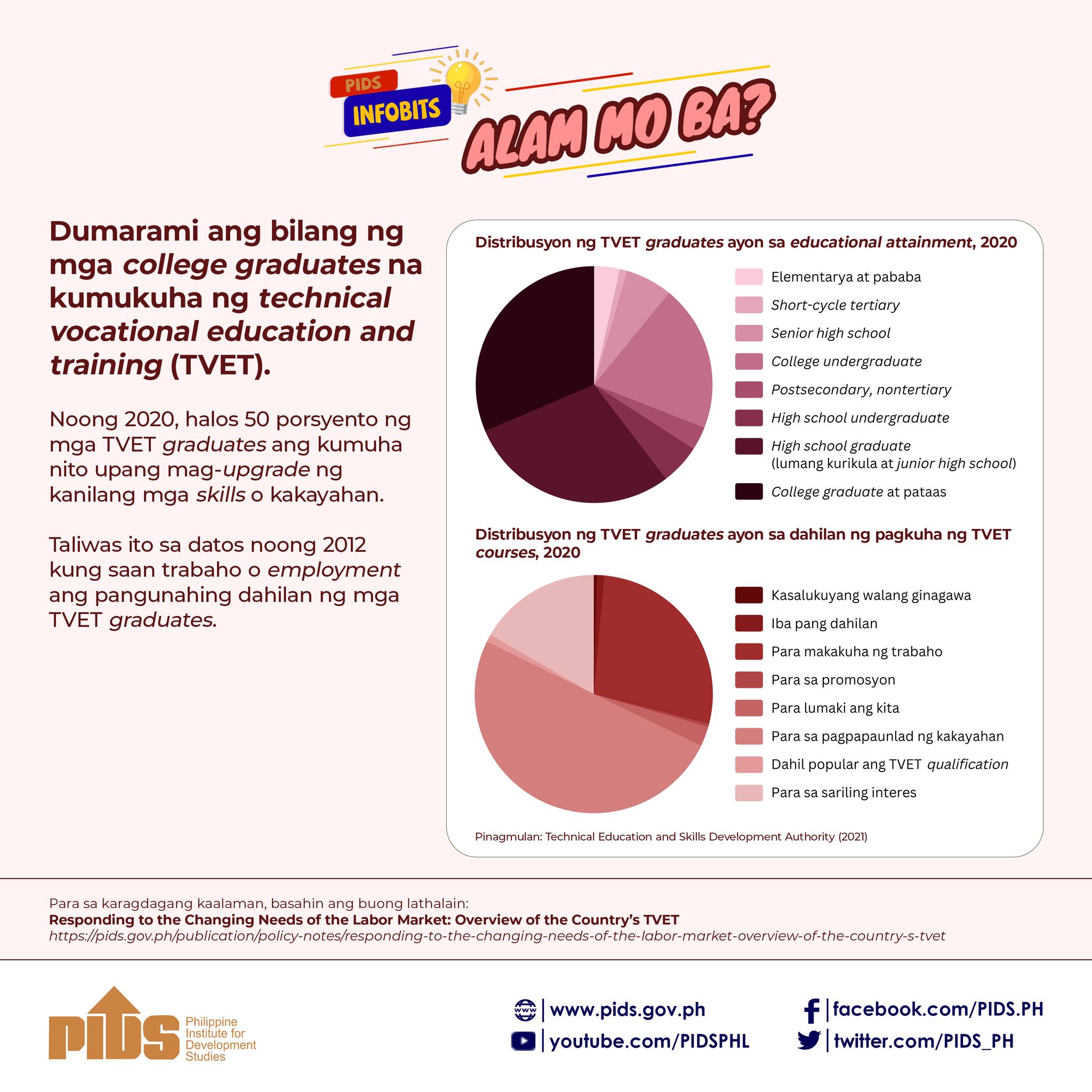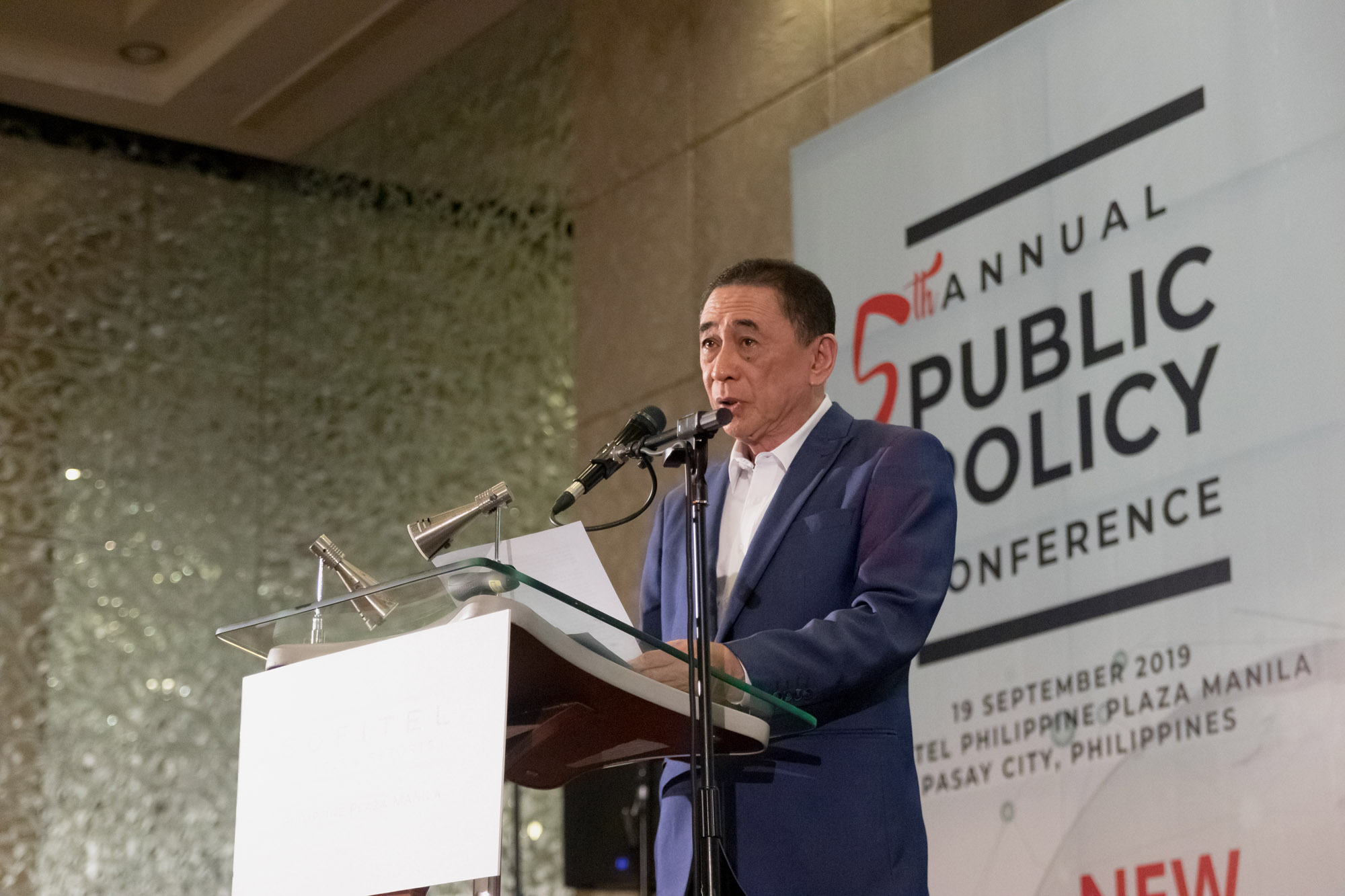
Labor market education is important to future-proof the next generation of Filipino workers.
Undersecretary for Workers Protection, Human Resource, and Internal Auditing Services Cluster Ciriaco Lagunzad of the Department of Labor and Employment (DOLE) said it is crucial to lay down the foundation of 21st century skills to ensure that current and subsequent members of the labor force will be able to compete globally and cope with the demands of the future of work.
“Providing our youth with timely and accurate labor market signals would enable them to prepare and harness their potential to its fullest by establishing strong foundations during their education,” Lagunzad explained during the Annual Public Policy Conference (APPC) organized by the Philippine Institute for Development Studies this year.
He said DOLE issued its Labor Information Report 2022 to guide students in making informed career decisions and help career advocates, career counsellors, and training institutions to come up with strategies that will increase the potential of current and future members of the Philippine workforce.
The DOLE official added that a good labor market information will “effectively link skills demand and supply”, which could lead to “good decisions” and “benefit individuals, businesses, and the economy”.
Apart from automation, Lagunzad said the government should be wary of the drastic changes in the overall business landscape, such as new work arrangements and emerging jobs. He pointed out that these evolutions may require upskilling, reskilling, and retooling of the workforce through technical, vocational, and educational training programs.
“Updated educational and training tools and approaches that utilize new technologies are essential to equip workers with the skills that they need to succeed in an ever-changing economy,” he said.
According to Lagunzad, the labor department has several programs to promote employment opportunities, human resource development, and security of workers’ welfare.
One is the Career Guidance Advocacy Program (CGAP) that aims to “raise the awareness of both parents and students about the labor market, and engage counsellors and advocates in optimizing the use of career guidance to address job-skill mismatch”.
Meanwhile, the Special Program for the Employment of Students, which supplements the CGAP, helps poor but deserving students to pursue education by encouraging their employment and providing them with financial assistance.
Another flagship program of the agency is JobStart Philippines. It is designed to address youth unemployment by providing trainings and interventions to enhance the youth’s knowledge and technical and life skills. The program also gives internship opportunities to shorten school-to-work transition.
The DOLE has also been conducting the Philippine Talent Map Initiative (PTMI) to assess the skills and competencies of the Philippine workforce. The outcome of the study provides evidence of the gaps on foundational career readiness skills. Based on the 2017 PTMI results, the top five strengths of Filipino workers are English and Math functional skills, workplace ethics, English comprehension, and multitasking, while the soft skills that need enhancement are teamwork, decisionmaking, innovation, planning and organizing, and creative problem solving.
Lagunzad also stressed the importance of “tripartism” and social dialogue to improve labor force in the country. “[The] continuous collaboration and tripartite partnership between government workers and employers, supported with our social partners, can make us adaptive to the changing world of work,” he said. ###
Undersecretary for Workers Protection, Human Resource, and Internal Auditing Services Cluster Ciriaco Lagunzad of the Department of Labor and Employment (DOLE) said it is crucial to lay down the foundation of 21st century skills to ensure that current and subsequent members of the labor force will be able to compete globally and cope with the demands of the future of work.
“Providing our youth with timely and accurate labor market signals would enable them to prepare and harness their potential to its fullest by establishing strong foundations during their education,” Lagunzad explained during the Annual Public Policy Conference (APPC) organized by the Philippine Institute for Development Studies this year.
He said DOLE issued its Labor Information Report 2022 to guide students in making informed career decisions and help career advocates, career counsellors, and training institutions to come up with strategies that will increase the potential of current and future members of the Philippine workforce.
The DOLE official added that a good labor market information will “effectively link skills demand and supply”, which could lead to “good decisions” and “benefit individuals, businesses, and the economy”.
Apart from automation, Lagunzad said the government should be wary of the drastic changes in the overall business landscape, such as new work arrangements and emerging jobs. He pointed out that these evolutions may require upskilling, reskilling, and retooling of the workforce through technical, vocational, and educational training programs.
“Updated educational and training tools and approaches that utilize new technologies are essential to equip workers with the skills that they need to succeed in an ever-changing economy,” he said.
According to Lagunzad, the labor department has several programs to promote employment opportunities, human resource development, and security of workers’ welfare.
One is the Career Guidance Advocacy Program (CGAP) that aims to “raise the awareness of both parents and students about the labor market, and engage counsellors and advocates in optimizing the use of career guidance to address job-skill mismatch”.
Meanwhile, the Special Program for the Employment of Students, which supplements the CGAP, helps poor but deserving students to pursue education by encouraging their employment and providing them with financial assistance.
Another flagship program of the agency is JobStart Philippines. It is designed to address youth unemployment by providing trainings and interventions to enhance the youth’s knowledge and technical and life skills. The program also gives internship opportunities to shorten school-to-work transition.
The DOLE has also been conducting the Philippine Talent Map Initiative (PTMI) to assess the skills and competencies of the Philippine workforce. The outcome of the study provides evidence of the gaps on foundational career readiness skills. Based on the 2017 PTMI results, the top five strengths of Filipino workers are English and Math functional skills, workplace ethics, English comprehension, and multitasking, while the soft skills that need enhancement are teamwork, decisionmaking, innovation, planning and organizing, and creative problem solving.
Lagunzad also stressed the importance of “tripartism” and social dialogue to improve labor force in the country. “[The] continuous collaboration and tripartite partnership between government workers and employers, supported with our social partners, can make us adaptive to the changing world of work,” he said. ###

